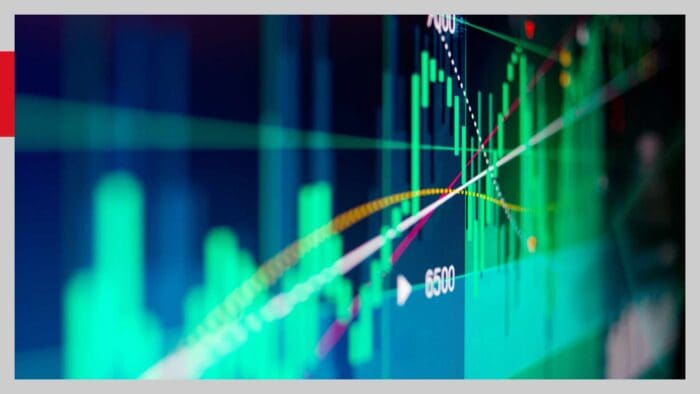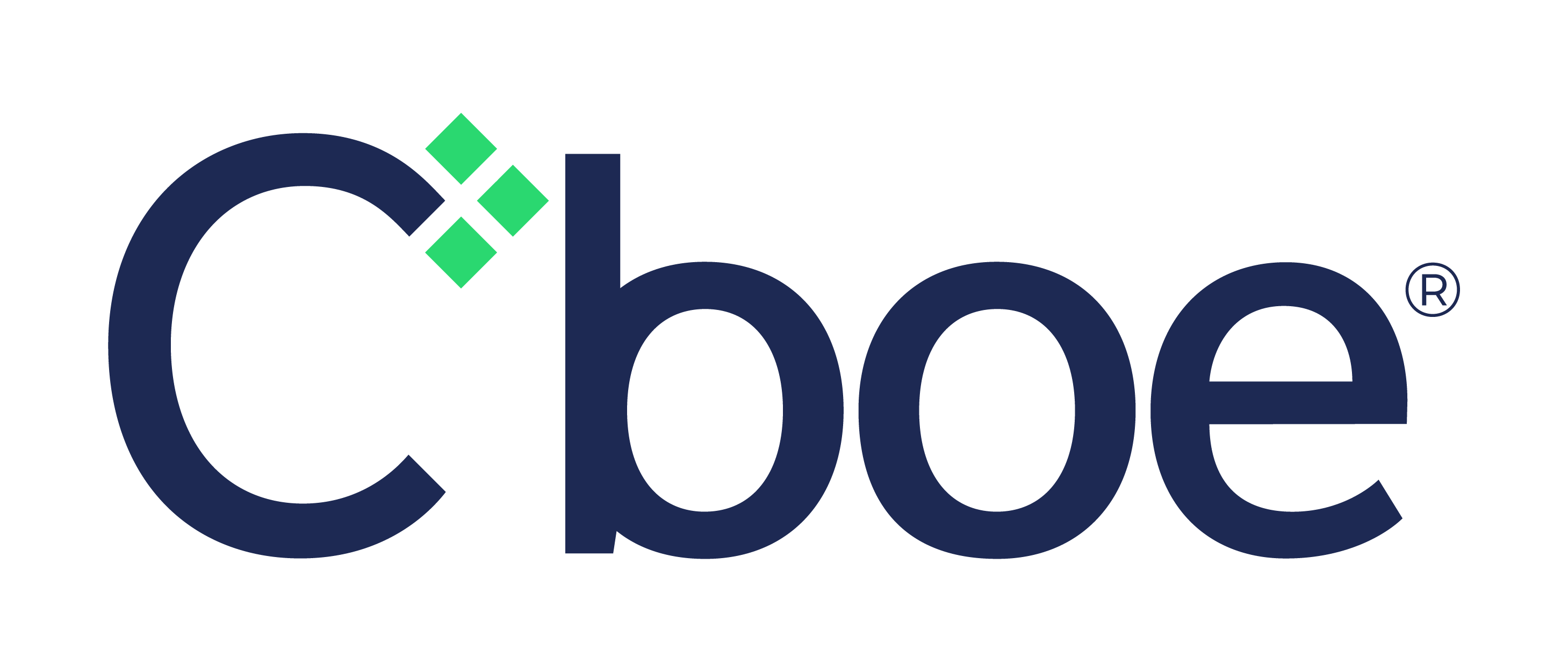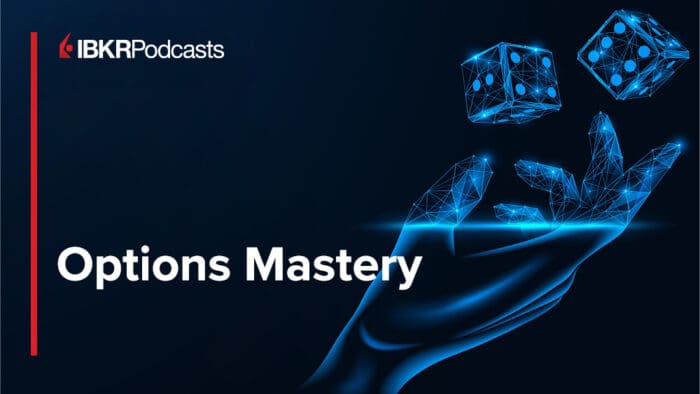Join Andrew Wilkinson and Iouri Saroukhanov as they dive into the world of equity options and financial strategies. From the basics of calls and puts to advanced risk management and market trends, this podcast offers expert insights to help investors make smarter decisions.
Summary – IBKR Podcasts
The following is a summary of a live audio recording and may contain errors in spelling or grammar. Although IBKR has edited for clarity no material changes have been made.
Andrew Wilkinson
Welcome to this week’s podcast, everybody, from Interactive Brokers. Let’s do that again. Welcome to this week’s podcast episode from Interactive Brokers. Joining me to discuss the role of equity options is Iouri Sarukhinov. Welcome, Iouri. How are you?
Iouri Saroukhanov
Very well, thank you very much for having me.
Andrew Wilkinson
No problem. Always a pleasure. Now, Iouri, you’re over in London and you serve as the head of CBOE Europe Derivatives team. So we’re going to start by discussing the role of options within an investor’s portfolio. So how, Iouri, might one use calls or puts to enhance or protect your holdings?
Iouri Saroukhanov
Perfect. Great question. I think we should start with a small fact about what calls and puts actually are. Calls and puts are options, so they are not an obligation. If you buy a call option, you have a right to buy an underlying at a future given point of time. And similarly with a put, you have the right to sell an underlying at a future point of time.
So armed with that knowledge we can take a step further and understand for the, let’s say, a participant who has a concentrated portfolio of stocks or indeed if they’re invested in a wide index, they can have a look at how they potentially protect themselves against the falling market.
So if they buy a right to sell a stock or an index in the future point of time, if the stock or index falls beyond that point, they can actually sell it at pre agreed price. So there is a great element of the derivatives that gives an insurance if you like. We all go about insuring our houses, our health, not many times we go about insuring our portfolios.
And this is one of the use cases for the options. And on the flip side, the calls, they can actually give you an additional income generation opportunity for your portfolio. Same scenario, so if you have a long position in a stock or an index and you think the market might be stable and not necessarily rallying your way too hard, you might want to go and sell a call position against that. By selling your call, you’ll receive the premium upfront. However, if the stock goes through your strike price or the index goes through the strike price, you might lose some money on your call position, but it will be compensated by the gains on your underlying.
So combining those can also give you an opportunity to actually sell the call to fund the purchase of your put, and this would be what we would call in Europe as a risk reversal. You buy the put, you sell the call, you might do it net premium so you don’t actually spend any money. So you’re capping your gains, but you’re ensuring against the downfalls in the market.
Andrew Wilkinson
Let’s talk a little bit about risk. What do investors need to be aware of in terms of benefits and the risks of trading options, Iouri?
Iouri Saroukhanov
Of course. Some of the benefits we’ve just highlighted. The risks, so any changes to your composition of your portfolio, you need to make sure that you adjust the options accordingly. Again, the scenario that we talked about, the stocks, if you sell the stock, then suddenly your whole risk profile changes. The short calls that you had against the long position, you might actually be exposing yourself to unlimited upside losses.
So if the market goes up and you still short call, you have to pay that difference if it’s cash settled, or you might need to give someone the stock at a much cheaper price than they’re actually trading. So that’s one of the risks.
Similarly it’s true for any option. By selling an option, you receive the premium upfront, but you are exposing yourself to potentially unlimited downside in your P&L.
On the flip side, if you’re buying an option, you know what your downside will be. It’s the premium that you’ve spent on that option, whether it’s a put or call. So in a way you have a limited downside there, but what you have to account for is variability in the prices in the meantime.
You bought a put for 10 bucks or 10 euros, whatever the currency may be. It actually might be trading five before it gives you a positive payoff of 15. And you need to be able to handle those price swings in between.
Andrew Wilkinson
Very good. Okay, let’s talk about venues for a second. Talk a little bit about over the counter or OTC options and explain how they differ from exchange traded options. What’s the difference?
Iouri Saroukhanov
I think I’m going to take that question a little bit wider, if you don’t mind, and actually talk about the general OTC style or OTC derivatives versus exchange traded derivatives. It might be options versus the products like warrants. It might be futures versus the products like CFDs, for example, contracts for difference.
Whilst on the face where they can appear similar, there might be some differences that are not necessarily obvious to an uneducated purchaser. Exchange traded derivatives typically have a clearinghouse that that would clear all of those transactions. In Europe, it might be vertically integrated with exchange.
So there might be a certain venue that has their own clearinghouse. In U.S., quite a lot of options are cleared through OCC, for example, there may be other combinations of those.
Whereas the OTC, they tend to be bilateral. So indeed, when an individual trades, they’re actually trading against that particular party that they are forming that contract with. That comes with a credit risk.
So if you trust an intermediary that you are interacting with, it shouldn’t be a problem. However, it certainly is a greater risk when you’re facing just one intermediary whilst in the clear solution, you are actually facing a central counterparty that is responsible for managing that risk and making sure there’s no default occurs.
And if default occurs by one counterparty, it’s unwound orderly, so it doesn’t affect the others. That’s one of the differences. And the other one important to note is also the transparency in price formation. Exchange traded derivatives, you have a huge amount of participants and they can be from retail to professional to institutional.
All those professionals, they submit their prices in central limits order book, that price formation is very transparent. In OTC contracts, again, bilateral nature. Quite often you end up with a limited exposure to the price formation, and therefore it might not always give you the best outcome.
Andrew Wilkinson
So now, who are options available to and what should a novice do if they want to learn more about exchange traded options?
Iouri Saroukhanov
Of course. Options availability really differs region by region, and typically regulators have their rules in each country or region, so it could be European wide, country specific. In the U. S. for example, about the eligibility to access options markets. Options typically and any derivatives are typically considered to be a complex product and therefore they would require a minimum standard of knowledge about accessing them, so that people who actually make the decisions on trading those options do that in an informed, educated way.
Each broker, like yourselves, they would have your own rules and standards, how, when you allow people access to certain products. And I think that due diligence is absolutely necessary to make sure that the right level of control is done by the participants.
In terms of learning more, I think that’s a fantastic question. I think we all can do more in educating our participants. I know that Interactive Brokers runs a great, great campus where a lot of learning materials are available. We at CBOE also have Options Institute and through Options Institute, we’re trying to educate broader population as well offering classes from, simple what is call and what is pull and put and options one on one to more complex subjects learning about the Greeks and set up second order derivatives.
Andrew Wilkinson
All valuable information. Finally, you mentioned.. when you’re over in London, Iouri, from your perspective, which companies attract most investor interest within the European markets?
Iouri Saroukhanov
European market is truly vast and diverse in terms of the presence of companies. I guess one of the hot topics around the chip makers, and there’s a one of the companies in Europe, ASML, that attracts certainly a lot of attention on and off. There is a company called LVMH, and this is a luxury goods producer. Again, a very interesting profile and certain exposure to the macroeconomics.
But then you also look at more industrial companies like Glencore, for example and Unilever that looks from different angles. So there’s definitely a vast number of companies with different profiles, depending on what the interest is and what industry you want to invest in, you have a pool of companies to choose from.
Andrew Wilkinson
Iouri Sarukhanov from CBOE Europe Derivatives. Thank you for joining me today.
Iouri Saroukhanov
Thank you very much. Thank you for having me.
Andrew Wilkinson
And to the audience, please remember to rate all of our recent episodes wherever you download your podcasts from. And look out for more from IBKR Podcasts.
Disclosure: Cboe Europe
Disclaimer:
There are important risks associated with transacting in any of the Cboe Europe B.V. (Cboe Europe) products discussed here. Options involve risk and may not be suitable for all market participants.
Before engaging in any transactions in those products, it is important for market participants to carefully review the disclosures and disclaimers contained at: https://www.cboe.com/us_disclaimers/.
Cboe Europe including their subsidiaries and parent companies (“Cboe”) do not undertake to provide you with trading advice or any advice, recommendation, or representation regarding the suitability, profitability or appropriateness for you of any investment, financial product, investment strategy, third-party product or service, or expertise regarding trading in a financial product. You should undertake your own due diligence regarding a financial product and/or investment practice.
Cboe does not act as a financial broker or adviser with regards to the selection of any investment in any financial product.
The financial products discussed here may involve the risk of loss, which can be substantial and, depending on the type of product, can exceed the amount of money deposited in establishing a position.
Market participants should put at risk only funds that they can afford to lose without affecting their lifestyle.
This information is not being provided as part of an offer or sale of any options products to any persons located in the United States or to a jurisdiction where the provision of this information is prohibited.
© 2024 Cboe Exchange, Inc. All Rights Reserved.
Disclosure: Interactive Brokers
The analysis in this material is provided for information only and is not and should not be construed as an offer to sell or the solicitation of an offer to buy any security. To the extent that this material discusses general market activity, industry or sector trends or other broad-based economic or political conditions, it should not be construed as research or investment advice. To the extent that it includes references to specific securities, commodities, currencies, or other instruments, those references do not constitute a recommendation by IBKR to buy, sell or hold such investments. This material does not and is not intended to take into account the particular financial conditions, investment objectives or requirements of individual customers. Before acting on this material, you should consider whether it is suitable for your particular circumstances and, as necessary, seek professional advice.
The views and opinions expressed herein are those of the author and do not necessarily reflect the views of Interactive Brokers, its affiliates, or its employees.













Join The Conversation
If you have a general question, it may already be covered in our FAQs page. go to: IBKR Ireland FAQs or IBKR U.K. FAQs. If you have an account-specific question or concern, please reach out to Client Services: IBKR Ireland or IBKR U.K..
Visit IBKR U.K. Open an IBKR U.K. Account